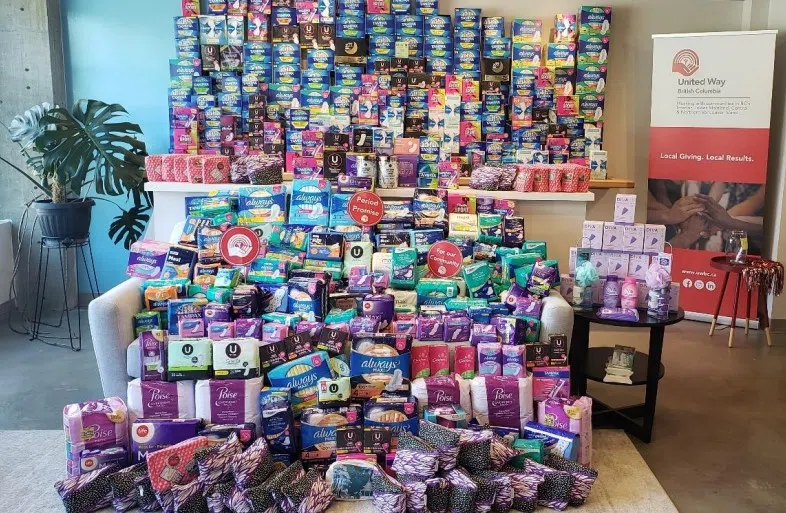
The United Way BC’s annual Period Promise campaign is once again looking to help those in need access menstrual products.
Access to period products has become more challenging for everyone, especially students, workers, and single parents, due to rising costs from inflation.
Many people struggle to afford both period products and food, and menstrual stigma makes it difficult to ask for help.
“We’re here to help break that stigma and get this conversation flowing within our community” says Chelsea Ingram, local Campaign Manager for the Kamloops area. “So hopefully, we can tackle some of those issues that we’re having.”
“There’s a few different ways that people can participate. One of the one of the biggest ways that you can participate is by organizing a period Promise Campaign within the community, whether that’s at your workplace, at school or with your union. You can collect product or monetary donation through our online giving platform which is located in our toolkit on our website and it has everything you need to run a campaign including a step by step guide.”
United Way’s research as part of the Period Promise Final Report revealed:
• More than half of people who menstruate in BC have struggled to buy products for themselves.
• A third of people say they haven’t known where to buy menstrual products they could afford.
• The cost of menstrual products is so prohibitive, many people opt to stay home without products when they have their period so they can buy more food for themselves or their families instead.
The goal across BC is to collect 500,000 products. There are 13 locations in Kamloops where you can drop off items this month:
- City Hall
- All four Interior Savings locations
- Forward law
- Far and Wide
- REMAX
- Both YMCA locations
- The John Todd center on the North Shore
- Modern Family boutique
- Hamlet’s Flores
- Foxy box
Ingram explains how the products will be distributed once the campaign ends.
“So United Way works alongside our agency partners in the communities and so all the products that are raised all the collected yeah they’re all collected locally, and they’re all gonna go right back into our communities through those agency partners and then they will be distributed out into the community from there.”















